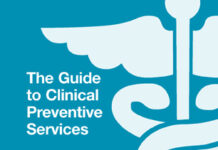The Unique Way the Dutch Treat Mentally Ill Prisoners
In this piece for BBC, Melissa Hogenboom reports on the way that people who have been convicted of crimes and diagnosed with mental illness are...
Psychiatric Diagnosis Can Lead to Epistemic Injustice, Researchers Claim
A discussion of the role of epistemic injustice in the experiences of patients diagnosed with psychiatric disorders.
I Smoked Weed Three Times and Ended Up in Rehab Hell
From VICE: In her recently published memoir, The Dead Inside, Cyndy Etler tells her story of being abused and subjected to attack therapy in a teen rehab...
ECT Survivors Take On the FDA
In December, the FDA proposed down-classifying the device used in electroshock treatment (ECT), which would loosen regulations and potentially make ECT more widely available...
Study Examines the Difficulty of Withdrawing from Antidepressant Drugs
Correcting unnecessary long-term antidepressant use is difficult and met with apprehension by providers and service-users.
“This Microchip Will Deliver Drugs in Your Body by Remote Control”
-Motherboard reports on an implantable chip that can hold hundreds of doses of drugs and be activated by remote control.
Rep. Tim Murphy May Be in Violation of Professional Psychological Ethics & the Law
As a former practicing clinical psychologist, I find Congressman and psychologist Tim Murphy's actions deplorable, a disgrace to the profession, a violation of the ethical principles that guide psychologists in their duties, and an attempt to use his credentials as a psychologist to manipulate the public and Congress to believe obviously false statements. As a result of becoming increasingly concerned about Congressman Tim Murphy's false, public statements conflating mental illness with violence, I contacted the Pennsylvania Psychology Licensing Board and formally requested the implementation of a State ethics investigation of Representative Tim Murphy, Ph.D. I invite you to do the same by emailing the PA board at [email protected]
“Former U.S. Detainees Sue Psychologists Responsible For CIA Torture Program”
On Tuesday morning, the ACLU filed a lawsuit on behalf of three former detainees against the psychologists who collaborated with the Central Intelligence Agency (CIA) to oversee the torture program. According to the Intercept, psychologists James Mitchell and John “Bruce” Jessen and their employees collected over $85 million dollars for designing and implementing techniques, based off of the work of Martin Seligman, that combatted torture-resistance techniques by creating a state of “learned helplessness.” There is, however, no evidence that these techniques gleaned any useful intelligence.
Ireland’s Implementation of Rights Covenant Under Examination
Next week the United Nations Human Rights Committee is scheduled to begin evaluating Ireland's progress towards implementing the International Covenant on Civil and Political...
The Media’s New Hashtag: #GuardianshipIsGood for Britney Spears
Recent press coverage of top star Britney Spears, who remains under a personal and professional guardianship, reflects conventional attitudes about “mental illness” that are both stigmatizing and encourage legislation that promotes forced treatment.
Shocking Rise of NHS Abuse of Mental Health Patients
From The Sun: Reports of abuse against NHS mental health patients hit a record high last year. In 2016, almost 200 cases related to the...
Your Pills Are Spying On You
From Pacific Standard: The new Abilify MyCite pill, which contains a digital sensor that tracks whether a patient has ingested the drug, has the potential...
Advocate for Outpatient Committal Recants
In an interview with the Los Angeles Times, Tom Burns recants. Burns is described as a psychiatrist who was long one of the strongest...
“Maybe Oregon Shooting and Others Aren’t About Mental Illness”
Matthew Cooper, writing for Newsweek, reports that despite the preponderance of political rhetoric about “mental illness” after mass shootings, a review of the research suggests that the connection between mental health and gun violence is dubious.
Experts Concerned That Depression Screening Will Lead to Overdiagnosis
Behind the U.S. task force recommendation to screen all children and adults for depression.
“Attacks on Hoffman Report From Military Psychologists Obfuscate Detainee Abuse”
Steven Reisner and Stephen Soldz, writing for Counter Punch, take on those who have criticized the Hoffman Report, which found that the APA had actively colluded in the US Torture program. “They have not credibly refuted these core findings of Hoffman’s seven-month investigation, nor have they even attempted to do so.”
Ireland: “Mentally Ill Still Forced to Endure Shock Treatment”
Despite the promises of two successive governments to end forced shock treatment in Ireland, unwilling patients are still being forced to undergo the therapy, according to the Sunday Independent. “Writer Ernest Hemingway, who committed suicide shortly after ECT, is reported to have said before his death: ‘It was a brilliant cure but we lost the patient.’"
My Response to the FDA’s ECT Rule Change
I lived through forced ECT from 2005-2006 at the Institute of Living in Hartford, Connecticut. My experience with ECT was the impetus for me to become involved in the antipsychiatry and Mad Pride movements, although I am not entirely opposed to voluntary mental health treatment. The following is the comment I submitted to the FDA on its proposal to down-classify the ECT shock device.
“Electric Shock Therapy Led to Sunderland Patient Having Permanent Fit”
Update: Elsie Tindle has sadly passed away after a forced electroshock treatment triggered an epileptic fit and permanent brain damage. The psychiatrist, Eugene van...
Trump’s Pick for Mental Health ‘Czar’ Highlights Rift
From The New York Times: President Trump's nominee to direct SAMHSA, Dr. Elinore McCance-Katz, who is a strong proponent of the medical model of psychiatry,...
“Letter to the Editor: Guns and Mental Illness”
The president and president-elect of the American Psychological Association penned a letter to the New York Times calling on “Congress and other policy makers to address these factors with interventions supported by evidence rather than avoiding them by scapegoating the mentally ill.”
Trump’s Pick to Run Mental Health
From STAT: President Trump has nominated Dr. Elinore McCance-Katz, a proponent of increased psychiatric treatment for those diagnosed with serious mental illness, to run the Substance...
Forced Treatment Ineffective: Advocacy Essential
Most Americans would agree that we have problem with mental health in this country, but what many do not know when they consider that people who are in distress are not getting the help they need is that hospitals in this country are not giving people a choice when they are in the most need. This is based on laws that currently exist in 45 US States, which allow individuals to be petitioned into an inpatient psychiatric unit against their will if they are deemed to be a “danger to themselves or others.” I have worked for 3.5 years as a Peer Support Specialist within my local public mental health system, where I see this happen to the individuals I serve, on a regular basis. I myself have been forced.
“Psychotic Shooters on the Open Frontier of Profit”
At CounterPunch, Joseph Natoli connects Big Pharma, mass shootings, and rampant inequality. He writes: “The Brave New World soma strategy to deal with a population that, were they not doped up, might violently disrupt that brave new world, is useful if a society is ‘creatively destroying’ a growing number of its population each day. While the poor have daily evidence of their poverty, a collapsing middle class live in the illusion that they are middle class and just a short distance, not from ruin, but from fame and fortune. They are, in short, heading for a catastrophic break-down. Big Pharma is already set to give us all a ‘soft landing.’”
Why Aren’t Providers Screaming About the Mental Health Act?
In this piece for Tales from the Madhouse, Gary Sidley critiques the Mental Health Act as a form of legal discrimination against people deemed "mentally...




















